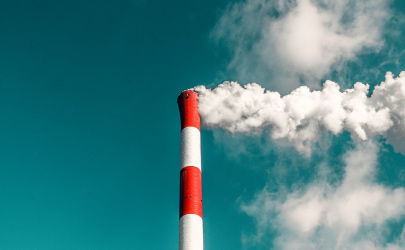Navigating Opportunities: The Evolving Waste-to-Energy Market in Asia-Pacific

“The Asia-Pacific waste-to-energy (WtE) market is growing rapidly due to increased urbanization, rising waste generation, and the need for sustainable waste management solutions. The region is heavily investing in advanced WtE technologies such as incineration, gasification, and anaerobic digestion to tackle waste disposal and produce energy. Countries like China and Japan are at the forefront, making significant investments in new WtE facilities and technology upgrades to reduce landfill use and enhance energy recovery.
Emerging markets in Southeast Asia are also expanding their WtE infrastructure to handle increasing waste volumes and promote energy diversification. Despite these advancements, the market encounters challenges such as high capital costs, technological complexity, and regulatory hurdles. However, the growing focus on circular economy principles and renewable energy is expected to drive further investment and innovation in the Asia-Pacific WtE sector.”
Asia Pacific Waste-to-Energy (WtE) Market was valued at USD 10.39 billion in 2023 and is projected to reach USD 35.44 billion by 2030, with a compound annual growth rate (CAGR) of 19.5% from 2024 to 2030.
The Asia-Pacific waste-to-energy (WtE) market offers several key opportunities due to the region’s rapid urbanization, increasing waste generation, and growing demand for sustainable energy solutions. One significant opportunity is the expansion of WtE infrastructure in emerging markets. As cities in countries like India, Vietnam, and Indonesia experience rapid growth, they confront significant waste management challenges. Investing in WtE facilities provides a dual benefit: effective waste management and renewable energy generation, addressing environmental and energy needs.
Technological advancements also create growth opportunities. Innovations in WtE technologies, such as improved gasification and anaerobic digestion systems, enhance efficiency and reduce operational costs. Adopting these advanced technologies can lower barriers to entry and make WtE more economically viable, encouraging further investment in the sector.
The integration of WtE with circular economy practices is another promising avenue. WtE technologies can play a crucial role in converting waste into valuable resources as countries strive to meet circular economy goals. This aligns with policies aimed at reducing landfill use and maximizing resource recovery, creating a favorable regulatory environment for WtE investments.
Public-private partnerships (PPPs) offer a significant opportunity for scaling up WtE projects. Collaborations between governments and private companies can facilitate the development of large-scale WtE facilities, share investment risks, and leverage expertise. These partnerships can also help overcome financing challenges and accelerate project implementation.
Additionally, the rise of green finance and sustainability investments presents an opportunity for WtE projects to attract funding. With growing interest in sustainable and environmentally friendly investments, WtE projects can benefit from increased access to capital and financial incentives aimed at promoting renewable energy and waste management solutions.
Lastly, educational and awareness campaigns can drive public acceptance and support for WtE projects. By highlighting the environmental benefits and energy potential of WtE technologies, stakeholders can foster greater community engagement and support for new facilities.
In summary, the Asia-Pacific WtE market holds substantial opportunities through infrastructure expansion, technological advancements, integration with circular economy practices, public-private partnerships, green finance, and public engagement. These factors collectively create a favorable environment for the growth and development of WtE projects in the region.
Competitive Landscape
Some of the major companies operating within the Waste to Energy market are: Veolia, Velocys, Biffa, Sims Limited, Stericycle, Keppel Seghers, Recology, Waste Connections, Xcel Energy, Hitachi Zosen Inova AG, China Everbright Environment Group Limited, JANSEN Combustion and Boiler Technologies, Wheelabrator Technologies, SUEZ, OMNI Conversion Technologies, WM Intellectual Property Holdings, Covanta Holding Corporation and others.